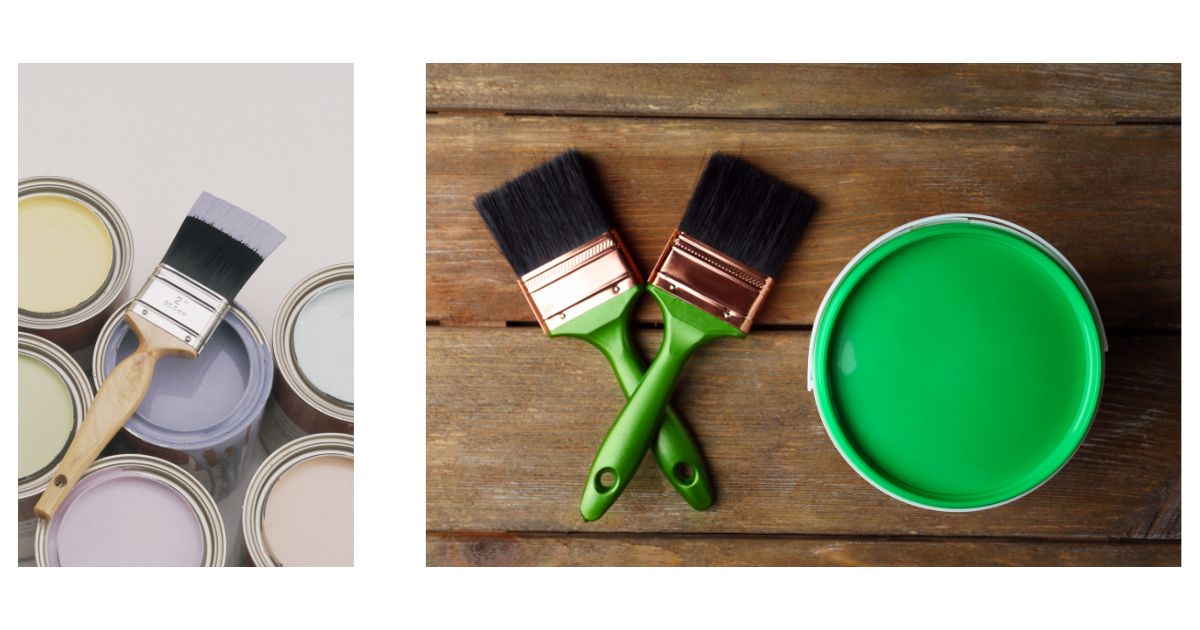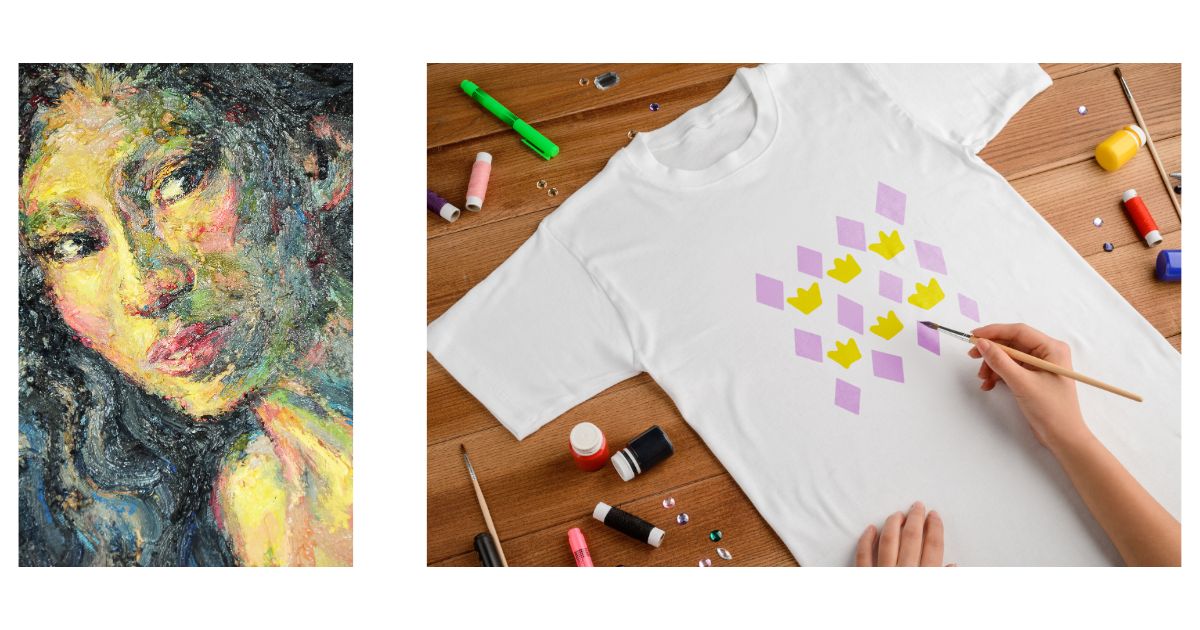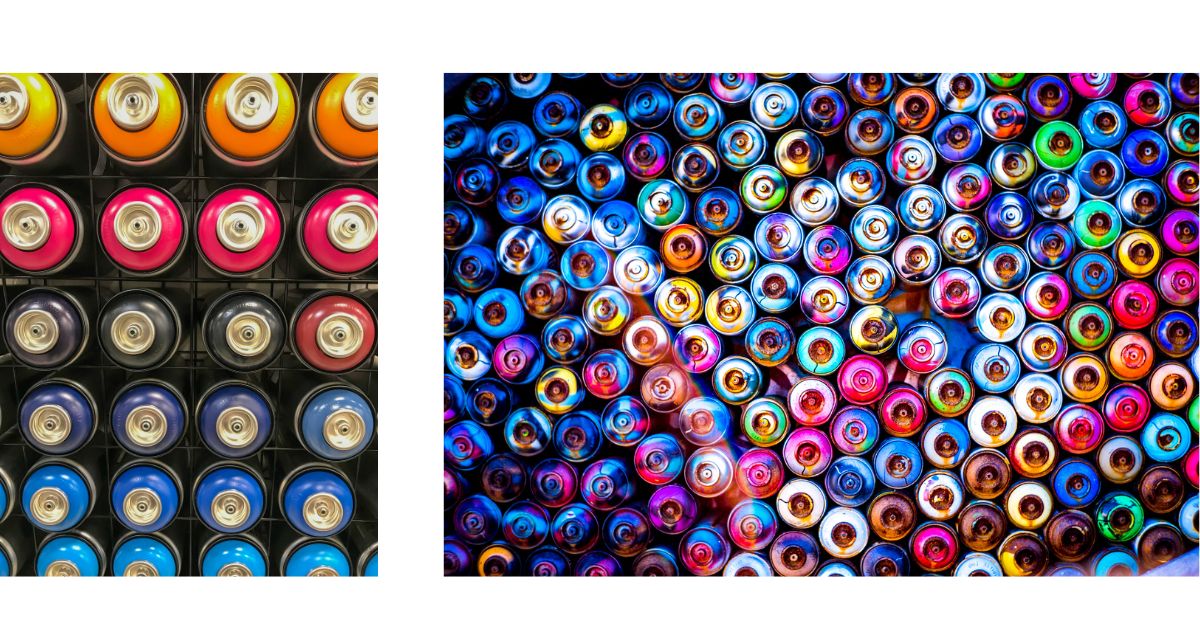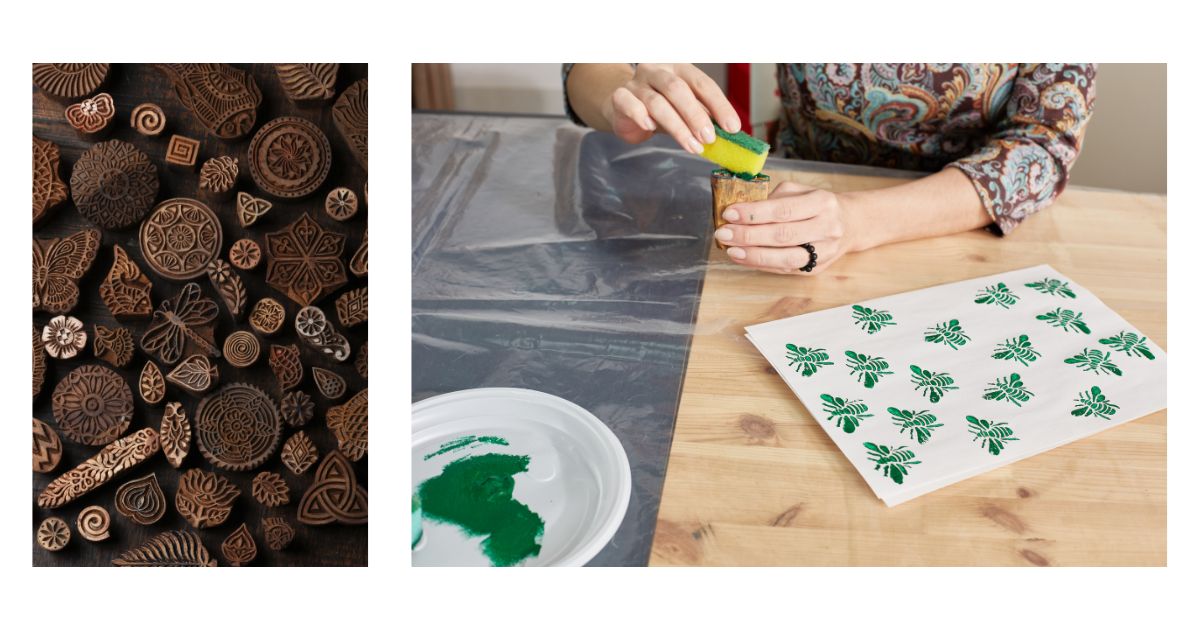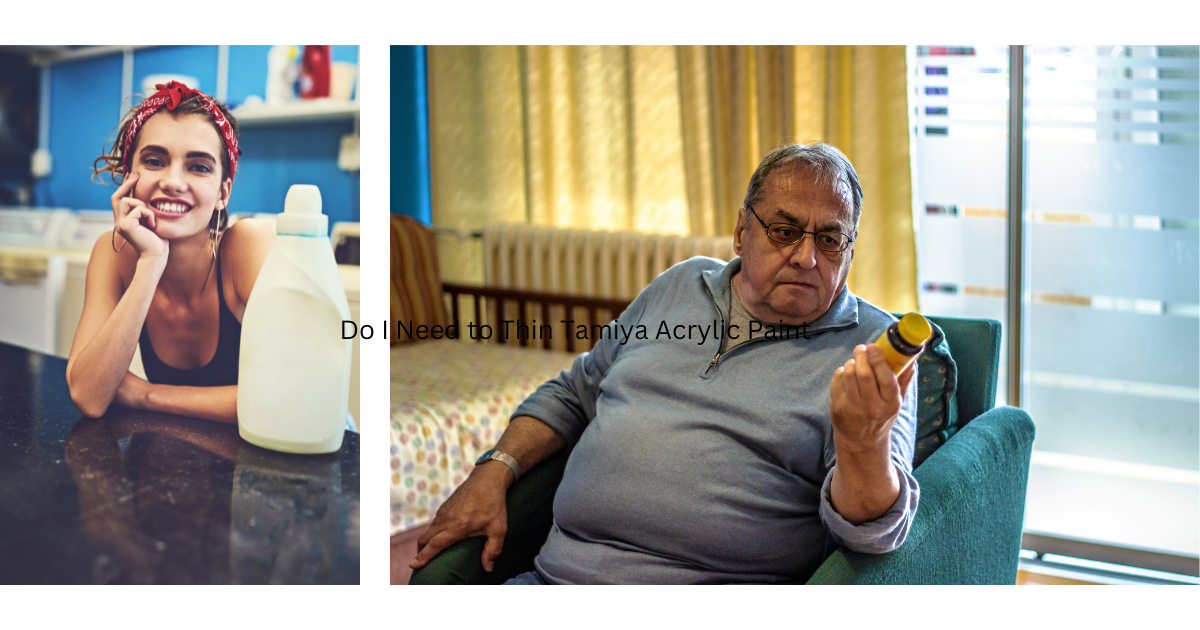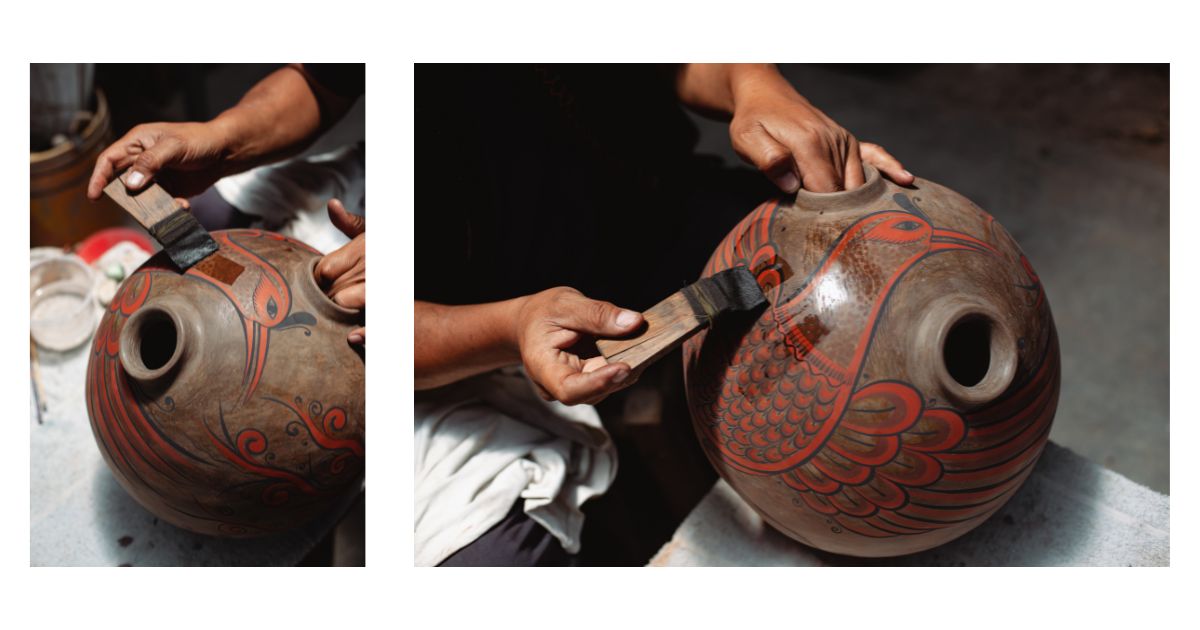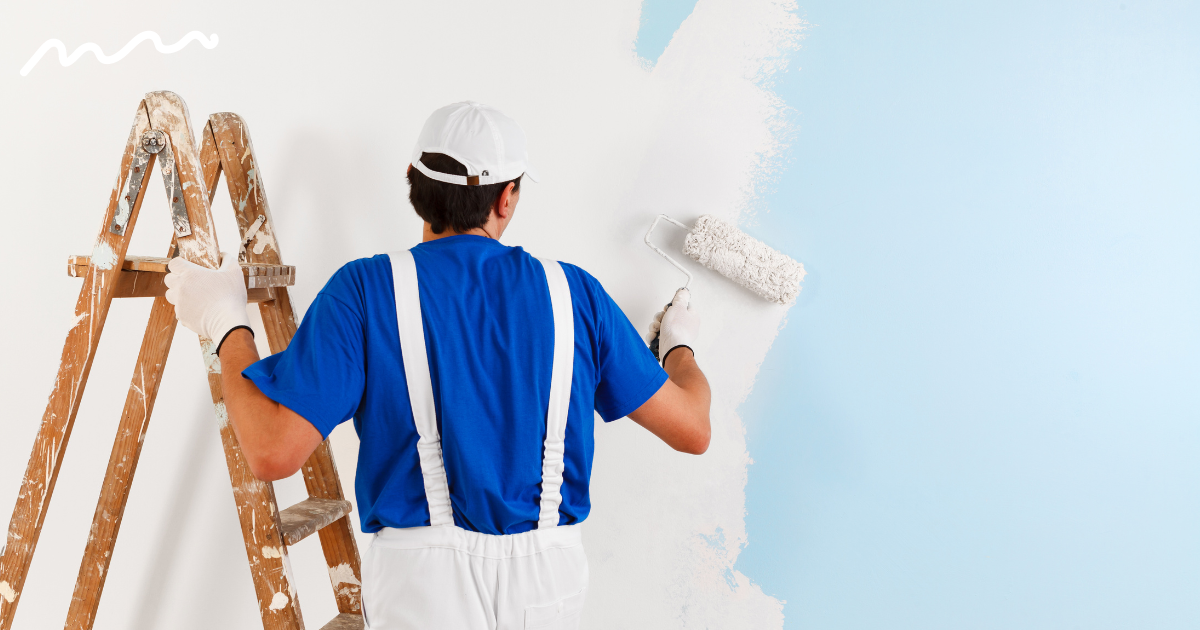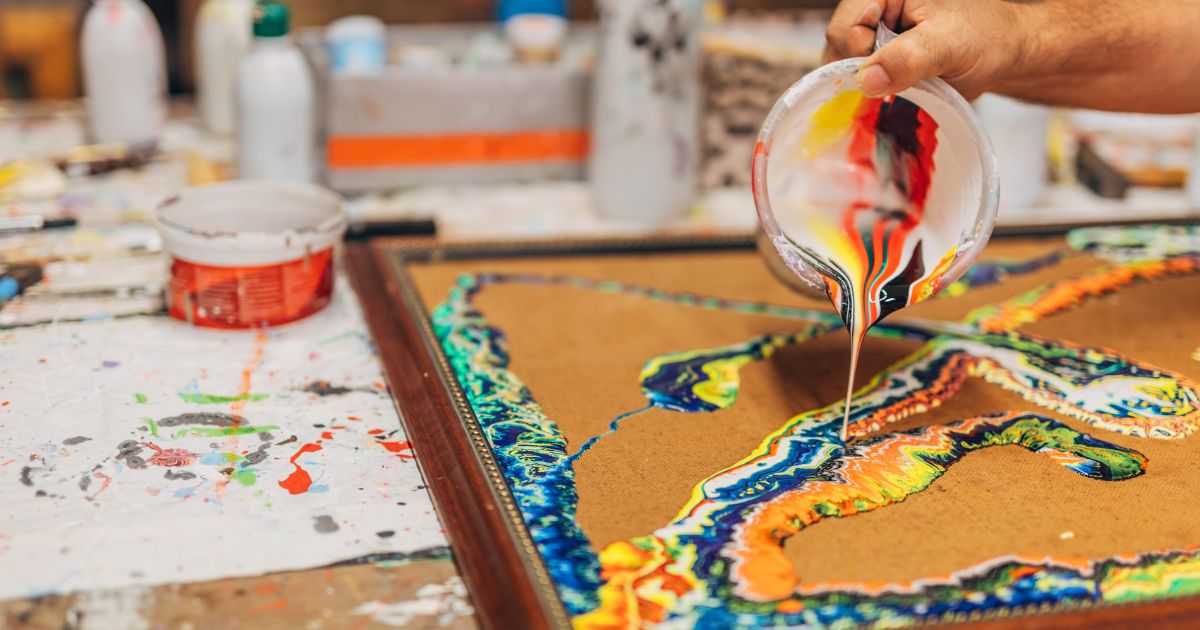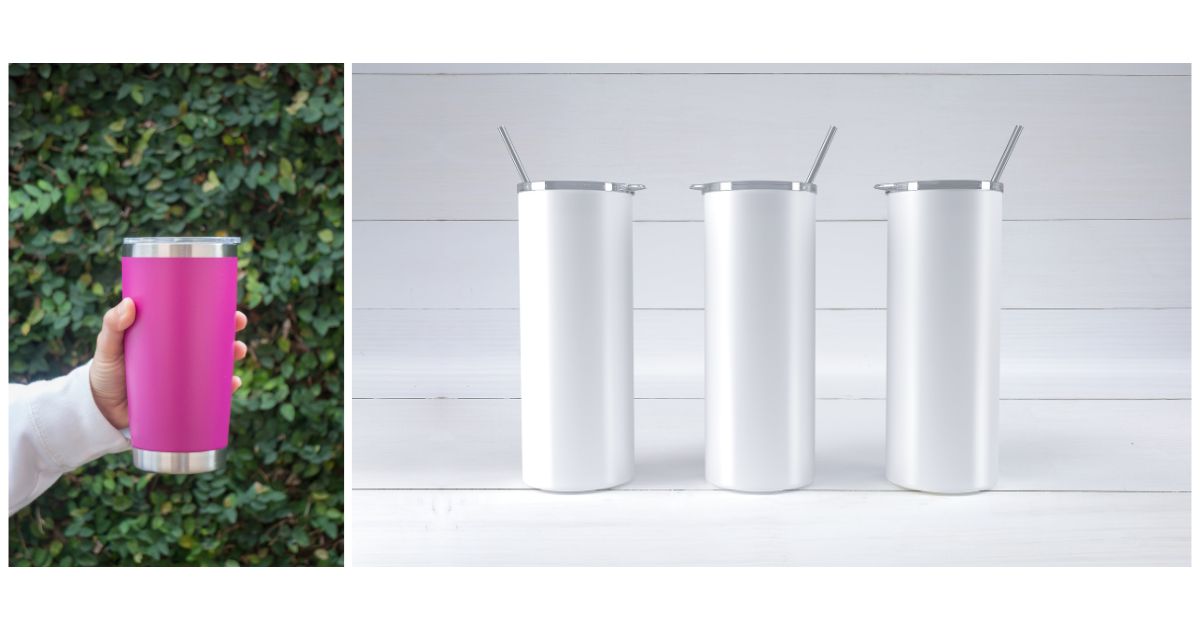Painting is a transformative and effective way to revamp your home and create a new vibe. Before embarking on any painting project, it’s crucial to know the different paint can sizes, their coverages, and dimensions.
Paint cans are available in various sizes, and it can be overwhelming to choose the right one for your project if you’re not familiar with the options. From quarts to gallons, jugs to buckets, each size serves a specific purpose.
Having knowledge of the standard paint can sizes and dimensions is beneficial for both DIYers and professional painters. It allows them to estimate the required amount of paint for a job and determine how much paint to purchase in order to complete the project.
Moreover, understanding the different sizes of paint cans helps painters calculate the time needed to finish a task and assess the material costs. By planning their work schedules accordingly, they can avoid issues like running out of paint or having excessive leftovers.
In this blog post, we will provide you with a comprehensive guide to the 11 standard paint can sizes, helping you select the right paint quality and quantity for your project.
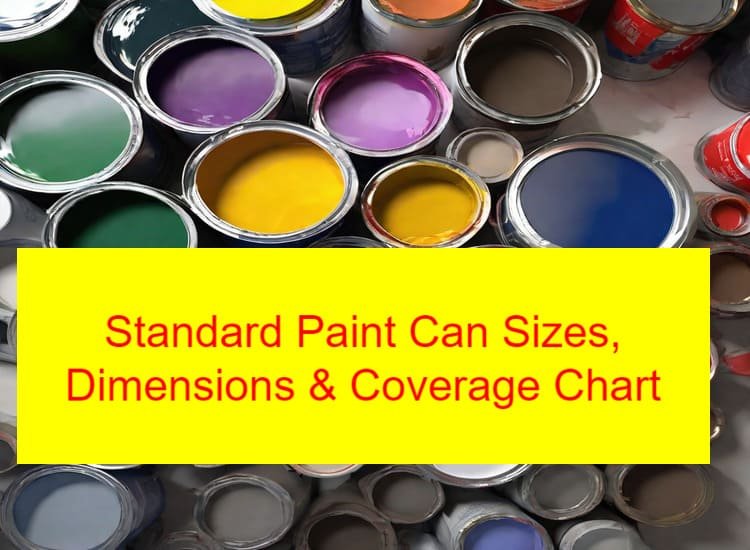
Paint Can Size Chart
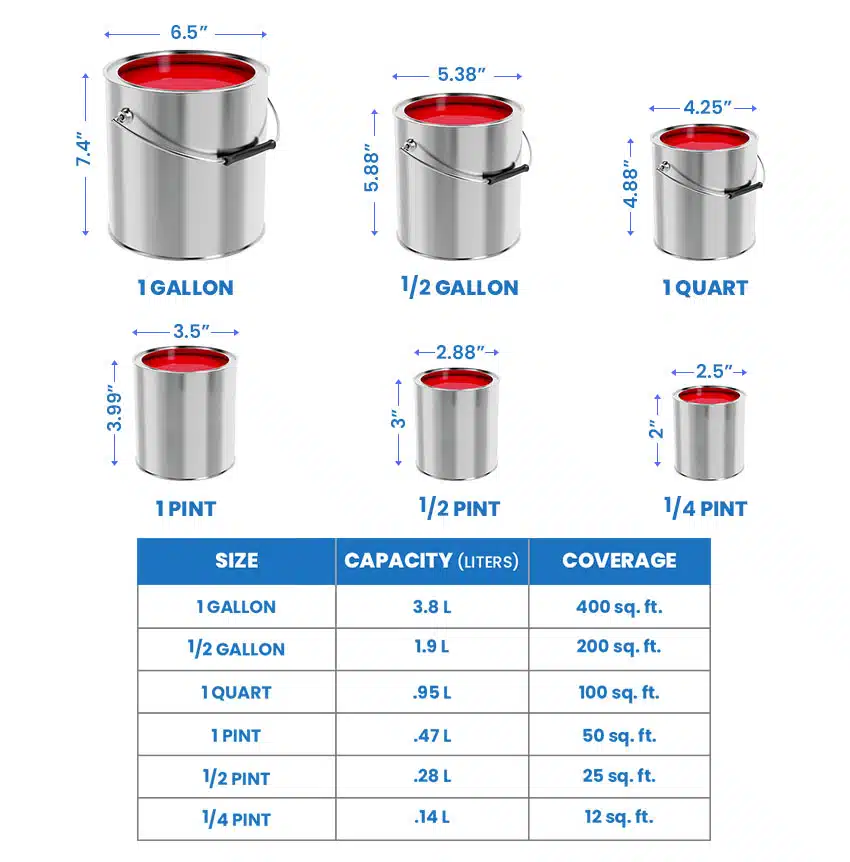
1. Quarter Pint Paint Can
The smallest paint size available in most local stores is the quarter pint. Measuring 2″ in height and 2.5″ in diameter, it contains 0.14 liters of paint, which is sufficient to cover an area of 12 square feet. This size is ideal for trying out new colors or for touch-up work.
2. Half-Pint Paint Can
Slightly larger than the quarter pint, the half-pint can cover an area of approximately 25 square feet. It measures 3″ in height and 2.88″ in diameter, holding 0.28 liters of paint. While it doesn’t offer extensive coverage, it is suitable for trim work and small touch-up projects.
3. One-Pint Paint Can
The one-pint size contains 0.47 liters of paint and provides coverage for about 50 square feet. With dimensions of 3.99″ in height and 3.5″ in diameter, this size is commonly used for touch-up jobs, trim work, and small furniture pieces.
4. One-Quart Paint Can
Offering coverage for 100 square feet with one coat, the one-quart paint can is often overlooked. It holds approximately 0.95 liters of paint and measures 4.88″ in height and 4.25″ in diameter. This size is suitable for crown moldings, closets, adding details, and small furniture pieces.
5. Half-Gallon Paint Can
The half-gallon paint can is a popular choice, holding 1.9 liters of paint. It measures 5.38″ in length and 5.88″ in diameter, providing coverage for approximately 200 square feet. This size is well-suited for small rooms, such as laundry rooms and bathrooms, as well as for painting furniture pieces.
6. One-Gallon Paint Can
The one-gallon paint can is the most common choice for many people. With a height of 7.4″ and a diameter of 6.5″, it can cover about 400 square feet with one coat. This size holds a maximum of 3.8 liters of paint, making it suitable for painting walls in various rooms, including the laundry, home office, bathroom, and pantry.
7. Five-Gallon Paint Can
Designed for large projects, the five-gallon paint bucket holds 18.93 liters of paint and can cover approximately 2,000 square feet of wall area. It is ideal for painting multiple rooms or open-concept spaces like dining rooms and kitchens. However, this size may not be readily available at local hardware stores and may require purchasing from a professional paint supplier.
Standard Sizes for Spray Paints
In addition to the traditional paint can sizes, spray paints come in various sizes suitable for specific projects. The standard spray paint sizes include:
- 4.5 Fluid Ounces: This size provides coverage for 7 square feet and is perfect for small projects, such as covering scratches or adding highlights to furniture.
- 6 Fluid Ounces: With coverage for a larger surface area than the 4.5-ounce size, this option is suitable for quick makeovers, like painting wicker furniture or revamping doorknobs.
- 12 Fluid Ounces: Offering coverage for approximately 20 square feet, this size is ideal for painting small to medium-sized furniture pieces.
- 16 Fluid Ounces: This common spray paint can size covers an average area of 30 square feet, making it suitable for revamping furniture, fireplaces, windows, and door frames.
Determining Paint Quantity
To estimate the amount of paint you need, divide the square footage of the area you want to paint by the coverage offered by the specific paint size.
For traditional paint, this calculation is straightforward. However, determining the quantity needed for spray paint can vary depending on application techniques and the number of coats required.
- To estimate the amount of paint needed for a paint job, divide the total square footage of the space by the available paint can size.
- Calculate the total square footage of the walls by finding the perimeter of the room and multiplying it by the ceiling height.
- Subtract the area of windows and doors from the total wall area to be painted.
- For a wall space of 536 square feet, divide it by the coverage of a half-gallon can of paint (200 square feet) to determine the amount of paint needed.
- In this example, approximately 2.68 gallons of paint (equivalent to 2 one-gallon cans plus a half-gallon) would be required to cover the bedroom.
Conclusion
Understanding the 11 standard paint can sizes empowers you to plan your painting projects effectively, reducing costs and waste. By selecting the appropriate paint size, you can ensure sufficient coverage for your walls, furniture, and other surfaces.
Remember to calculate the amount of paint you need accurately to avoid unnecessary expenses or multiple trips to the store. Happy painting!

